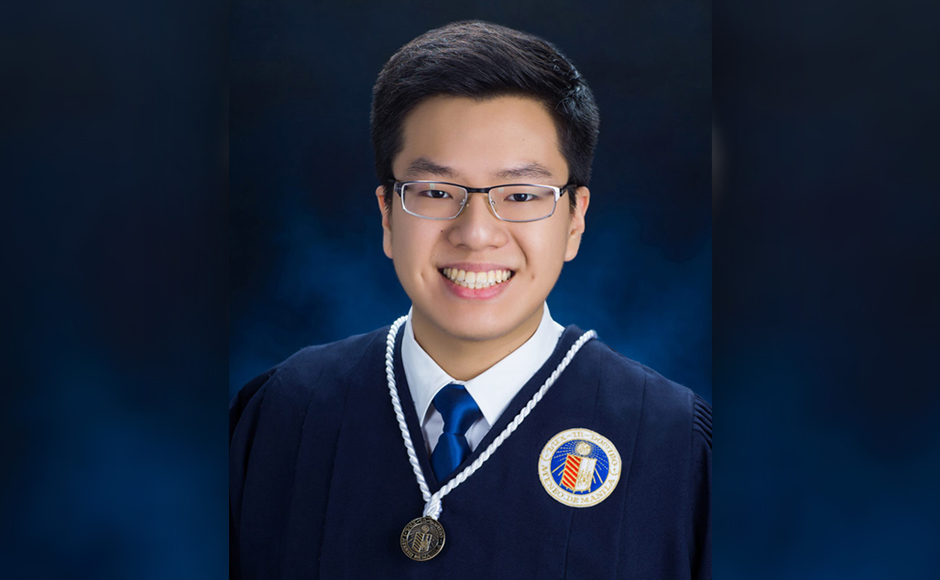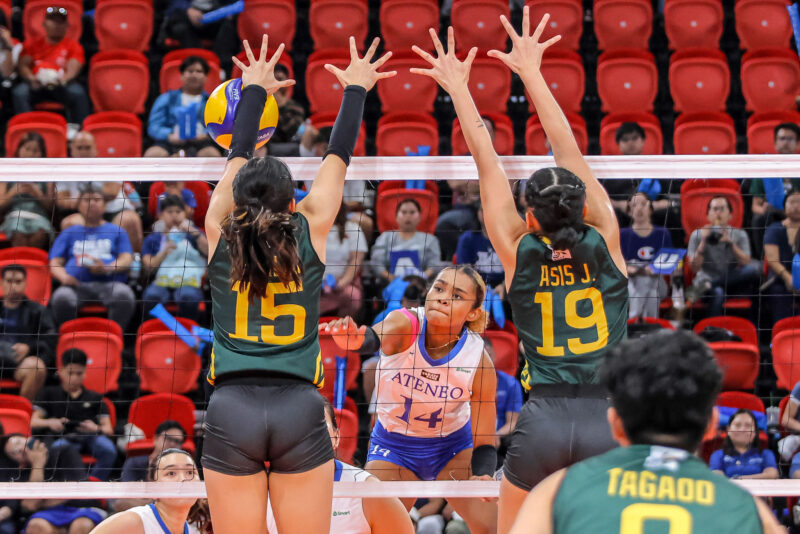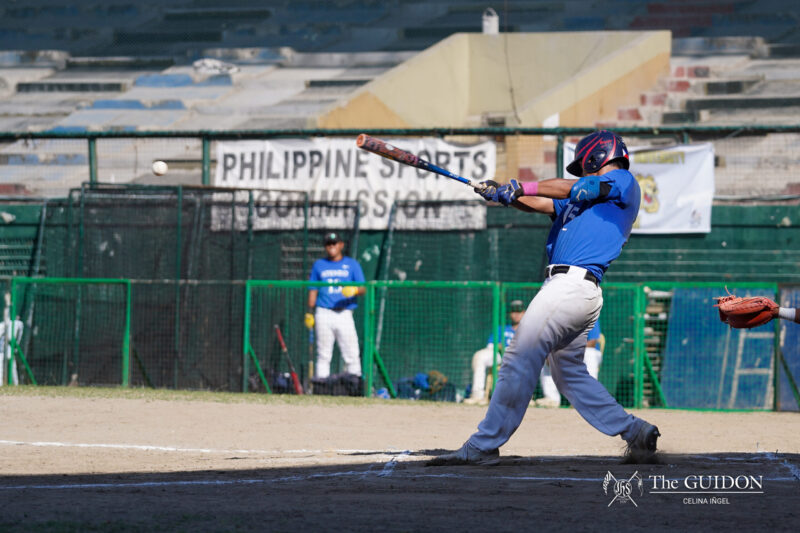The following text is the valedictory address delivered by Ryan Carl Y. Yu (BS ME ’15), summa cum laude and valedictorian of the Ateneo de Manila University Class of 2015, during the 2015 Loyola Schools (LS) Commencement Exercises. He delivered this speech on March 27 and 28, 2015.
Fr. Antonio Moreno, Provincial Superior of the Society of Jesus; Mr. Ernesto Tanmantiong, Chair of the Board of Trustees; Fr. Jose Ramon Villarin of the Society of Jesus, University President; Dr. John Paul Vergara, Vice President for the Loyola Schools; Vice Presidents and Deans of the University; beloved administrators, faculty, and staff; dear parents, guests, and friends; and my fellow graduates, good afternoon.
Class of 2015, we did it. Everything has led up to this moment: science experiments and literature plays in freshman year, meeting and serving NSTP communities in sophomore year, taking on philosophy and theology in junior year, and getting through sleepless nights of writing theses and preparing for panel defenses in senior year. Throughout our four-year stay in college, we’ve met a great variety of people, each of them brilliant in their own way, like Germaine Kaw, who was not only awarded summa cum laude but also challenged the status quo of business through her work in social entrepreneurship, Harvey Parafina, who managed to become the program awardee for Philosophy while remaining committed to helping children for Kythe-Ateneo, Karlo Abadines, who challenged our already outstanding organizations to move one step further and create long-term impact, and Joyce Tiam-Lee, who not only became the program awardee for the Health Sciences program but also committed to the service of many underprivileged communities. Because of this, I am extremely proud of our batch, but I also had a very difficult time making this speech because I wasn’t sure how to do justice to the achievements of everyone here today. What is the story of the Class of 2015? Because I promised Fr. Asandas Balchand and the other members of the eight-day seniors retreat that I would keep my message short and sweet, I’d like to sum up that story in these words: Mangahas, bumangon, at magtaya.
Una, mangahas.
Masarap maging Atenista, ngunit napakahirap maging Atenista. The requirements for our core curriculum and major subjects are difficult enough on their own, but having to balance these with the vibrant co-curricular and extra-curricular life in and out of campus really tested our limits. Sometimes, in just a single day, we might have had to attend classes, submit papers, take exams, conduct org meetings, train for competitions, and so much more. Indeed, the Ateneo student life is challenging, and in the middle of the night during hell week, I would often chat with my Facebook friends who were also persistently working, and we would ask ourselves, “Bakit pa ba natin ginagawa ang lahat ng ito? Is all this really worth it?” Two minutes later, though, we stop asking and continue to work, in fear that the sun will have risen without us finishing the last thousand words for our essay or completing the long form needed to reserve the venue that our organization desperately needed. Now that we are officially ending our college lives, I’d like to ask once more: Bakit nga ba natin ginawa ang lahat ng iyon? Was all that really worth it?
Ateneo has taught us not to back down from challenges because only by being tested do we discover who we are and what we can do. For instance, when Typhoon Yolanda hit, Ateneans were called to create 80,000 relief packs for the victims. The task seemed impossible, but somehow, we managed to come together to take on the challenge, to the point that even at three in the morning, student athletes and other similarly athletic individuals would tirelessly unload sacks of rice from delivery trucks and reload them with finished packs, while the less athletic individuals, myself included, would help by cheering them on. Given a seemingly insurmountable task, we gave it our all and achieved the impossible.
Ngunit minsan, sa harap ng mga hamong sumusubok sa atin, nabibigo tayo. We were only able to achieve great things because we took risks, and we were aware that it always came with the possibility of not reaching what we had set out to do. College has given us many experiences of failure: being point-zero-something away from reaching the Dean’s List or not mustering up the courage to give your blue rose to your special someone.
Nakaranas din tayo ng pagkabasag. There were times when we encountered events that shattered us, especially since we are definitely a batch that has experienced a lot of loss. We witnessed the death of thousands of our innocent countrymen in the face of Typhoon Yolanda. We grieved the falling of our soldiers and fellow Filipinos in Mamasapano. We suddenly lost Miko Ancheta and Amanda “Sei” Hsieh, neither of whom I had the privilege of knowing personally but who have touched the hearts of many people in and out of this university.
I know what it’s like to be broken. Near the end of my junior year, my father suddenly passed away. I was devastated, and at first, I didn’t know what to do. The pain of loss is indescribable, and I sympathize with those who have shared the same experience. That was, however, also a very rich source of learning. It taught me to worry less about the things that took up my time, like daily inconveniences and minor mistakes, and to give more value to the people who mattered most to me, especially to my loving family, who helped me become who I am today. By being broken, I had been given the opportunity to realize who I am and what really mattered to me, but after taking a fall that painful, I had trouble getting back up again.
Ikalawa, bumangon.
Paano tayo babangon? Sa pamamagitan ng tulong ng iba. Throughout my college life, I kept myself busy with both academic and extra-curricular work. I saw myself as a leader and a mentor to my members, so when I had lost my father, I found it difficult to be in a position where I needed help. It was definitely a humbling experience, especially when Sir Eddieboy Calasanz, one of my favorite professors, told me, “You don’t always have to be the strong one.” Aside from teaching us how to be passionate learners and leaders, Ateneo has also helped us realize what it means to be human, and that includes accepting help when we need it most. In the various groups that I’ve joined, such as the Sanggunian, the Management Engineering Association, the Ateneo Christian Life Community, and the Ateneo Student Leaders’ Assembly, I’ve been blessed not only with good project heads and central board members but also lifelong friends who have stood by me, and for each and every one of them, I am eternally grateful. Dear batchmates, never be afraid to ask for help, and always be thankful for the help that you will receive.
Bakit tayo babangon? Sapagkat ang buhay ay isang napakagandang biyaya. When I was down, I felt that as long as I kept my eyes open, I would always find something to lift my spirits. Walking around campus, I saw trees that stood tall and flowers that were in bloom, buildings that told the story of decades past, and even kittens around the Loyola Schools and bags in Matteo that had become so integral to the community that they have been immortalized by Facebook and Twitter accounts of their own. When you have a campus as beautiful as Ateneo, it’s hard not to find joy. I am also very fortunate to have learned from professors like Sir Eddieboy Calasanz, who never failed to remind me, “Relax ka lang,” and “Bukas ang bukas,” and Sir Bob Guevara, whose question, “Will you remain in the familiarity of slavery or cross the sea and risk death to see if freedom awaits on the other side?” continues to disturb me to this day. I was blessed to have been taught by Dean Darwin Yu and Ma’am Mari-Jo Ruiz, who showed me that business can be used as a force for good. Many faculty and staff members in this university have changed our lives and have shown us that there are always better things to come, not just for ourselves, but also for others. There is truly a lot to be thankful for, and when we are down, we should try to count our blessings, and we will realize that the God who has given us our lives has meant for us to live them to the fullest.
Bakit tayo babangon? Sapagkat inaasahan tayo ng iba. Despite the pain of brokenness, I chose to continue to live my life and pursue my advocacies because Ateneo has introduced me to the people whom I am called to serve. I was very fortunate to have been given a chance to stay with the Factoriza family for three days during my Senior Immersion, wherein Tatay Nestor, Nanay Therry, and their three children welcomed me with open hearts. On my last day, Nanay cooked the best sinigang na baka that I had ever tasted, and I later found out that it was the first time in months that the family had tasted beef. Although they were in a difficult financial situation, they were willing to spend whatever they had to welcome a visitor they had known for just a few days, and in the face of that selfless love, how can you not respond to the call to serve?
Ikatlo, magtaya.
Sa harap ng matinding kahirapan, malaki ang tuksong itaboy ang pag-asa. That call to service is more urgent than ever, as our countrymen continue to suffer and die each day because of abject poverty. In a world where the odds are stacked up against them, the marginalized members of our society fail to have their voices heard, and they may lose hope for a better future. The coconut farmers in the Philippines, for instance, are among our poorest countrymen. For many years, they have asked to gain access to the coco levy fund, which was meant to improve their industry, but their cries for help fell on deaf ears. Also, people from different provinces, in the hope of escaping poverty and finding better jobs, ended up in even greater poverty along the streets of Quezon City. Because they lacked the opportunities to gain access to good employment, they did not know if it would ever be possible for them to live dignified lives.
Kailangan nila ng mga aasa para sa kanila, at higit na mahalaga, mga aasa kasama nila. When I was down, those who helped the most were the people who shared their time to be with me, and it seemed to me that my friends could not find joy in themselves until they had made me feel consoled. I realized, then, that true freedom comes not when we enjoy good lives for ourselves but only when every single person has been saved from poverty. It is, perhaps, for this very same reason that Ateneans cannot rest until they have come to the aid of their poorest brothers and sisters. It is through the hope of groups like the Ateneans for Agrarian Reform Movement, which has joined the national coalition in lobbying for the coconut farmers’ rights, that the march of 71 brave farmers from Davao City to Malacañang was organized, and their cry for justice was finally heard by the government. It is because of the hope of Sir Benjie Mirasol and Christ the King that the informal settlers living under a bridge were able to organize themselves into a thriving community in Zabarte, Quezon City, and it is through the work of mentors like Ma’am Pam da Silva that Ateneans are inspired to develop social enterprises to provide better lives for the people in this community.
Tinatawagan tayong magtaya, alang-alang sa ating lahat. In the end, I believe, this is what Lux in Domino means: that from our experiences of brokenness, we find the light in the Lord and use it to help those who are in need of light so that we may all truly claim to live in dignity as one people. Now that we are going down the hill and entering the so-called “real world,” we are confident that Ateneo has equipped us with the skills that we need in order to succeed, but how we define that success is up to us. In a few years, we will be the movers and shakers of this country, and this, my dear batchmates, is the challenge to each one of us: how will we transform society? How will we, through our own stories of brokenness, rise up and serve the last and the least? Fr. Arrupe’s voice calling us to be men and women for others echoes to this day, and I’m very excited to see how each one of us will respond to that call.
Mangahas, bumangon, at magtaya. Nawa’y patuloy tayong mangahas sa harap ng sakit ng pagkabasag, muling bumangon sa tulong ng Diyos at kapwa, at magtaya nang buong puso para sa pagpapalaya nating lahat.
Edited: Mar. 31, 2015 at 10:17 PM







